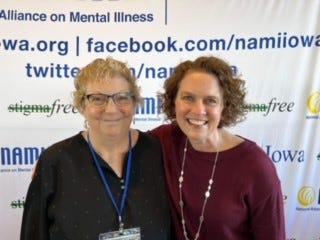Earlier this week I had a big day here in Iowa. I was honored to be one of the keynote speakers for the NAMI Iowa Day on the Hill event, which I co-delivered with my dear friend, fellow Iowan, and fierce mental health advocate, Leslie Carpenter.
Keep reading with a 7-day free trial
Subscribe to Minding the Gaps to keep reading this post and get 7 days of free access to the full post archives.




